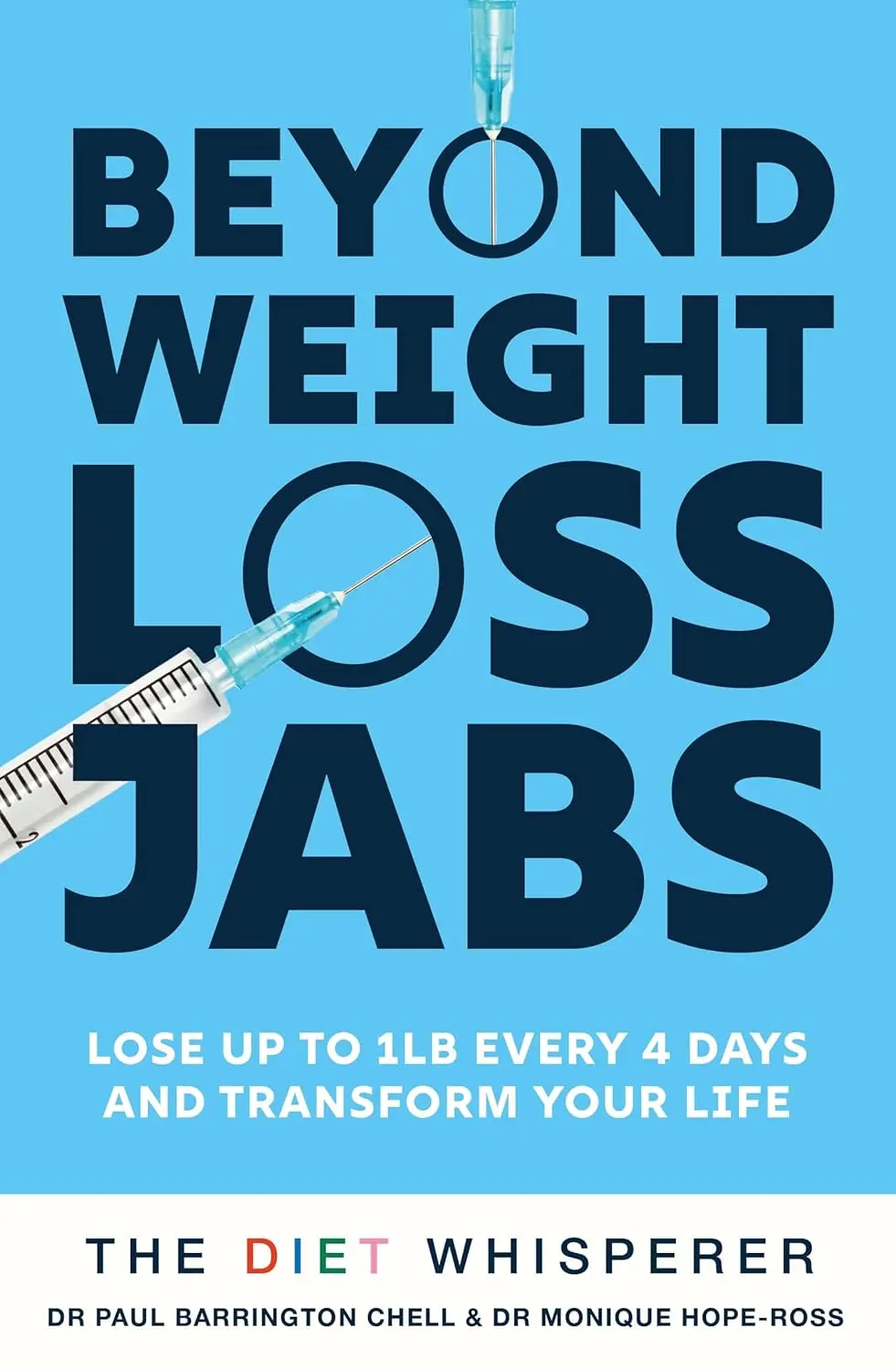Apple cider vinegar - Unlocking weight loss and health benefits
Published: 3rd February 2022
Last Updated: 8th January 2026
Dr Paul Barrington Chell and Dr Monique Hope-Ross
Apple cider vinegar has a long pedigree, shrouded in mystery; a folklore remedy found in many cultures from the Babylonians to the Aryans to Samurai warriors, who used it for strength and power. More than 2,000 years ago, Hippocrates recognized its value as an antiseptic, and later, apple cider vinegar was used to treat wounds on the battlefields of WW1 and the US Civil War.
Apple cider vinegar hit the big time in 2021 when Dr. Darshna Yagnik’s work showed that it could successfully tackle E. coli and MRSA bacteria, both of which cause serious gut infections. Amid the deepening concern about widespread resistance to antibiotics, the news that apple cider vinegar was at least 90% as effective as antibiotics has led to renewed interest in its role in health.
What is Apple Cider Vinegar?
Apple cider vinegar is apple juice that has undergone double fermentation. Crushed apples are mixed with yeast, converting the natural sugars into alcohol. After a few weeks, natural bacteria and yeasts convert the alcohol into acetic acid. Acetic acid gives the vinegar its strong taste and smell.
You will notice that some apple cider vinegar is dark with wispy, floating bits. These bits are the good bits, composed of probiotic bacteria and protein, called ‘the mother’. Sometimes manufacturers filter out the mother, reducing the protein and probiotic bacteria, to give a clear vinegar. We don’t have much data on how this affects the probiotic value of the vinegar, but we guess that the unfiltered product will have more rather than fewer good bugs!
Health Benefits of Apple Cider Vinegar
Weight Loss
It has been suggested that apple cider vinegar suppresses your appetite and makes you feel fuller, hence the link to weight loss. It has been shown to prevent fat accumulation in animal studies, with some human studies showing weight loss benefits.1, 2 However, a detailed review of the published studies concluded that there is currently insufficient evidence to support the use of apple cider vinegar as a weight loss treatment.3 This does not mean that apple cider vinegar is of no value in weight loss; but, with the present state of knowledge, the evidence is slim and the case unproven.
But all is not lost; apple cider vinegar may be a useful tool to improve your metabolism, and a healthier metabolism means a healthier you.
Reducing Postprandial Blood Sugar
This is probably the most convincing potential use for apple cider vinegar.4 After a sugary meal, sugar rushes into the circulation, resulting in high blood sugar levels. High blood sugar causes a large insulin release. If this scenario is repeated constantly over prolonged periods, an ever-increasing amount of insulin is needed to do the same job. This is called insulin resistance. Eventually, there is insufficient insulin to reduce blood sugar, and diabetes is not far away.
Insulin resistance is the beginning of all metabolic problems and weight gain. Keeping insulin resistance low is critical for health, as it helps to avoid weight gain and prevent diseases such as diabetes. This is where apple cider vinegar may help. Apple cider vinegar reduces the speed of glucose absorption, preventing glucose spikes in the blood, lowering insulin release, and thus preventing insulin resistance.
In a trial, subjects were given 20g of apple cider vinegar or a placebo drink.5 Immediately after, they were given a sugary meal, which was a buttered bagel and orange juice, containing 87g of carbs. Insulin release, blood sugar, and insulin resistance were compared between the group who had had the apple cider vinegar and those who had not. The results showed that apple cider vinegar reduced glucose spikes, reduced circulating insulin, and reduced insulin resistance. This effect on preventing postprandial blood sugar rises, is seen particularly after a sugary meal.
A recent review confirmed that there is considerable support for the positive role of apple cider vinegar in reducing blood sugar after a meal.6 Apple cider vinegar has been suggested as a treatment for people with diabetes to help control blood sugar, because of the effect on insulin resistance.7,8
It’s best to avoid sugar to enjoy a healthy metabolism. If you do succumb to the odd plate of chips (chips are strings of glucose molecules), douse them with apple cider vinegar, and you will reduce the postprandial blood sugar spike. You can alternatively take apple cider vinegar before a sugary meal, where you are going to have a pudding. The addition of apple cider vinegar to your food is not carte blanche to eat sugary foods, but it does mitigate your sugar response, helping to reduce insulin resistance and support a healthy metabolism. Antioxidants
Join our growing community of Whisperers
Get the latest news in dieting straight to your inbox with our free monthly newsletter
Apple cider vinegar is rich in polyphenols containing flavonoids, chlorogenic acid, and other hydroxycinnamic acids.910 Polyphenols, natural plant antioxidants, contribute to the control of inflammation, and there is mounting evidence of their role in preventing heart disease, cancer, and strokes.
The double fermentation process involved in the production of apple cider vinegar increases the bioavailability of these antioxidants, and it is this antioxidant effect that provides the health benefits. To date, no trials confirm the role of apple cider vinegar in disease prevention, but the abundant polyphenols present make it a likely candidate for further research and significant health benefits.
Probiotic
Probiotics support healthy gut bugs, which are critical for good health.
If you use apple cider vinegar, you help your gut bugs. Apple cider vinegar contains up to one hundred different live bacterial species, called probiotics. Live, raw and unfiltered vinegar has the greatest concentration of good bugs. Organically grown vinegar has more bug species than those grown using conventional farming methods.11
There is encouraging data on the role of apple cider vinegar in supporting your gut bugs based on animal experiments. In one trial, the addition of apple cider vinegar resulted in a beneficial change to the composition of gut bugs. The ratio of Firmicutes (bad bugs) to other bugs decreased. Firmicutes is generally regarded as a bug associated with obesity, so it’s good news when it decreases. But we need more research before we can extrapolate these findings to humans.
Antibacterial Properties
Apple cider vinegar has antibacterial properties. The acetic acid in vinegar can kill harmful bacteria. This makes it useful for cleaning and minor wound care. In 2021, Dr. Darshna Yagnik’s work showed that apple cider vinegar could effectively tackle E. coli and MRSA bacteria, both of which cause serious gut infections.12 Work is proceeding to evaluate whether it has a role to play, particularly in the case of antibiotic bacterial resistance.
How to Take Apple Cider Vinegar
If you take it daily, the most common way to incorporate apple cider vinegar into your diet is to add one or two tablespoons (10-30ml) per day to water or tea. Do not take it neat. A moderate amount would be 30ml (two tablespoons) per day.
Apple cider vinegar can be used or added to foods such as salad dressings, sauces, or soups. You can take apple cider vinegar before a sugary meal to reduce your blood sugar spike or sprinkle it on sugary food such as potato chips or fries.
Potential Pitfalls of Apple Cider Vinegar
If apple cider vinegar is taken in moderate amounts, it is regarded as safe. Larger amounts may be associated with low potassium, and it has been reported to fall to dangerously low levels, although this is rare. There may be stomach upsets, throat problems, and interactions with medications. Apple cider vinegar is among the most acidic foods taken, and it isn’t a good idea to drink neat vinegar, as it damages your tooth enamel, which is hard if not impossible to replace.
Conclusion
Apple cider vinegar has a small role in blunting the blood sugar response to a sugary meal, thus helping to prevent insulin resistance and keep your metabolism healthy. Apple cider vinegar (live) is a probiotic, with healthy bacteria, with gut-friendly properties and may also be helpful, due to its antioxidant, anti-inflammatory properties. However, there is currently insufficient evidence to recommend daily apple cider vinegar as a long-term health or weight loss supplement.

